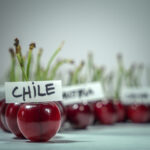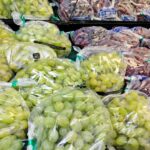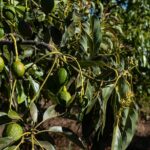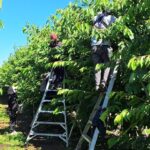Chile: SAN urges immediate assistance for stranded farmers

The president of Chile's National Agricultural Society (SAN) Patricio Crespo has called on the country's authorities to urgently assist farmers in the Copiapo Valley who have been left stranded by recent flooding in the region. 
Copiapo Valley Agricultural Producers and Exporters Association (APECO) president Lina Arrieta said the priority at the moment was to rescue the wounded and delivery food and water to places like Tierra Amarilla where authorities still had not arrived three days after the catastrophe.
"We haven't had electricity or water for three days. There are wounded people who still haven't been tended to. We still don't know the full extent of the damage, only that in places like San Antonio El Calqui, Amolanas and Cerrillos the water took everything in its path with it," Arrieta said.
"The farmers we have been able to communicate with say the losses will be in the millions and their grapevine hectares are completely flooded.
"The coordination between the public services has been poor. In our area of Tierra Amarilla no one has yet arrived. We are still cut off by land, we have only seen a helicopter flying over the town. We need a helicopter urgently to help us go further up in the valley, evacuate the wounded and bring water."
She also feared for the lives of farmers residing in the highlands of the valley, especially in areas where there are rivers and where there was an avalanche that occurred at dawn while residents slept.
One producer that has managed to reach some affected areas is Oscar Prohens, who is an APECO director and a local farmer. According to his account, in some cases the floods covered up to five hectares of grapevine production land.
"There is damage to the grapevines, packing houses and other facilities. But the biggest problem at the moment is that there is no access to the top of the valley," he said.
"We have seen very little movement of machinery and much of the aid is being provided by agricultural companies in the area, who in some cases have used private helicopters to rescue people, deliver water and shelter the victims in their installations."
The flooding also hit local water infrastructure, and the manager of the Copiapo River Supervisory Board, Cristián González, noted that the rains and floods had destroyed large sections of canals.
"In San Fernando there are 800 hectares of vegetable production all under mud, completely lost. I estimate that we have about 5-10 kilometers of channels with all their intakes and access to secondary canals destroyed," González said.
"Copiapo has been modernized over recent years of effort...now we must rebuild all of this. We will have to reinvent ourselves."
The SNA president also joined the calls for help, urging immediate assistance be provided to people stranded in rural areas.
"Atacama and Coquimbo are regions that have managed to boost agricultural development, which means that there are hundreds of families living in these areas, and unfortunately we still haven't heard from many of them," Crespo said.
"I strongly urge the authorities to come to the rescue of these people. We have testimonies from families who remain isolated, waiting for water and food."
The SNA president said that because of the isolation of most farmers, it still had not been possible to make an inventory of the damage left by the rain.
"There will be time to gather economic information and make diagnoses later. For now, our priority is to provide basic assistance to affected families and the wounded who remain isolated," he said.
The head of the Elqui River Supervisory Board - also in the Copiapo region - highlighted that the recent rains would not be the solution to the drought that has been affecting the region over recent years.
"The government really needs to put their batteries in because this water is not a solution," Cristián Pinto said.
"We have many big problems, many of our producers have their finial notifications for the non-payments. It is essential that the government take action on the matter," he said.
In the Atacama and Coquimbo regions there are 41,093 hectares of fruit farms, which represent 14% of the the country's total fruit production surface.
About 34% of the fruit farms are less than 20 hectares, meaning they belong to medium and smallholder farmers. In both regions about 54,000 people are employed through agriculture.
A representative of California-based company Pandol Brothers told www.frehsfuritportal.com the real tragedy in this situation was not the damage done by the flood, but that all that water would not be utilized to create food and jobs.
"The more water availability varies, the greater the need for water storage," special projects director John Pandol said.
"The fact that these northern valleys cannot store enough water for times of low availability and cannot store water when it becomes available are two symptoms of the same problem - insufficient infrastructure."
Photo: Copiapo River Supervisory Board














































